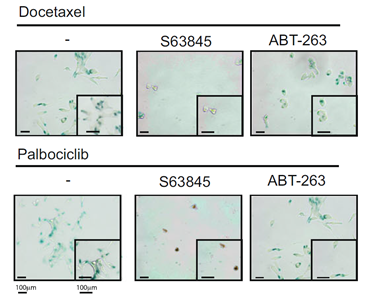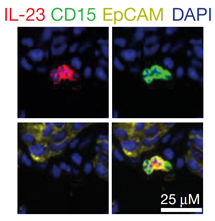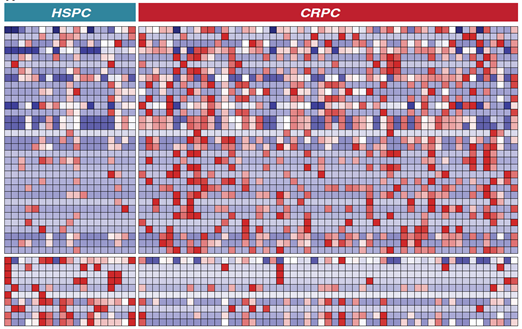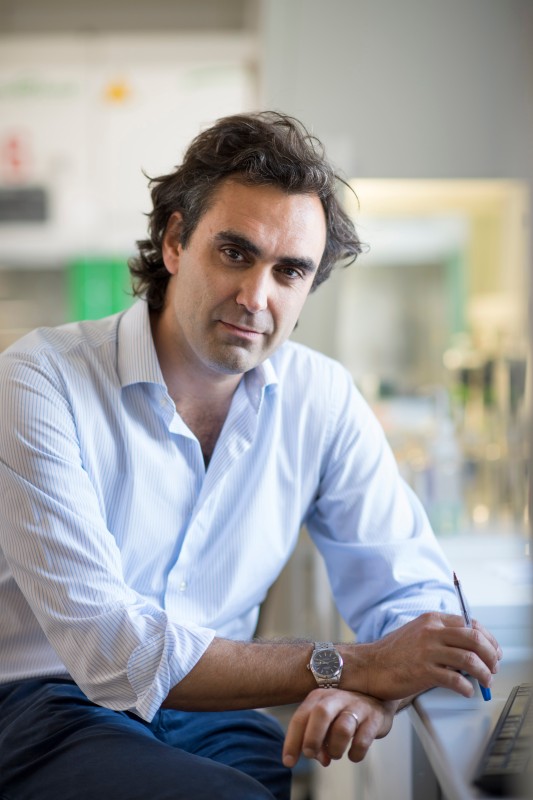Experimental Oncology - Prof. Andrea Alimonti
Discovering novel methods to combat prostate cancer is the primary focus of Professor Dr. Andrea Alimonti's research group. Their research is centered around cellular senescence, immunotherapies, and gut microbiota.
Research Topics
Identification of new experimental therapies based on the induction/inhibition of senescence in cancer cells

Prostate cancer at an advanced stage is extremely irresponsive to conventional and targeted therapies. These tumors often harbor PTEN loss, which results in poor prognosis and therapy resistance. Acute PTEN loss induces a senescence response in vitro and in vivo, termed PTEN-loss induced cellular senescence (PICS). Cellular senescence is an irreversible cell growth arrest. It has been recognized to oppose tumor formation. Importantly, even though senescence restricts tumorigenesis in vivo, prolonged accumulation of senescent tumor cells has a negative impact on the tumor microenvironment, thereby allowing tumor progression.
Our research focuses on PICS characterization and identifying novel compounds with pro-senescence or senolytic activity. We aim to develop the concept of pro-senescence therapy for cancer, from experimental evidence to clinic, investigating the efficacy of “pro-senescence” compounds. At the same time, we aim to identify small molecule inhibitors that can selectively eliminate senescent-tumor cells (senolytics). Our final aim is to implement, in tandem, a ‘Pro-senescence approach’ followed by ‘Senolytic therapy’.
We are also investigating the role of senescence in metastasis formation and the use of senolytics to prevent metastasis.
Study of the prostate tumor microenvironment and tumor immune response

Another relevant objective of our group is the characterization of the immunophenotype of prostate tumors of different genetic backgrounds. We have found that the prostate tumor microenvironment is strongly infiltrated by myeloid-derived suppressor cells (MDSCs), a heterogeneous myeloid cell population that promotes immunosuppression and tumor progression. MDSCs can interfere with senescence driven by PTEN loss or conventional chemotherapy. They can also promote resistance to androgen-deprivation therapy, a type of treatment normally used in the clinic to treat metastatic prostate cancer patients.
Our aim is to develop targeted immunotherapies against MDSCs infiltrating prostate cancer. We are running the molecular profiling of MDSCs to find their features and mechanisms in senescence that can have implications for cancer therapy and suggest novel approaches to enhance the efficacy of cancer treatments.
The role of the gut microbiota on prostate cancer development and treatment resistance

Recently, we extended our interest in the contribution of gut bacteria in response to anticancer therapies. We have found that the gut microbiota of preclinical models and patients with castration-resistant prostate cancer is enriched with specific bacteria. These bacterial species can produce androgens from their metabolic precursors and contribute to a significant amount of circulating androgens, fueling tumor growth even if patients are on anti-androgen therapy. We aim to optimize therapies targeting the gut microbiota to reverse therapeutic resistance in lethal prostate cancers.
Visit our Website for more information.
Via Francesco Chiesa 5
6500
Bellinzona
Switzerland
